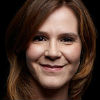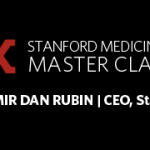Roni Zeiger on the power of “micro-experts” and product design for health
Roni Zeiger, MD, firmly believes that the stars are aligning for true peer-to-peer collaboration in health care. Driving the movement are three factors: networks of highly motivated, well-informed patients and caregivers, emerging technologies that allow these networks to share knowledge and a culture ready to embrace this type of collaboration. Peer-to-peer collaboration in health care, Zeiger says, offers the opportunity to accelerate scientific discoveries and break down existing silos within the medical community.
To make it easier for patients and caregivers to learn from each other and share their knowledge with health-care providers, Zeiger and his co-founder, Gilles Frydman, launched Smart Patients in April. An online community for cancer patients and caregivers, Smart Patients allows users to search for information on the latest scientific findings relating to certain diagnoses and clinical trials, as well as share best practices based on their personal experiences.
This fall at Medicine X, Zeiger will teach a Master Class on product design for health. Although the Master Class is sold out (you can still sign up for the waiting list during registration), Zeiger shares a sampling of the topics he’ll discuss during his class in the following Q&A.
![]()
At Medicine X 2012, you spoke about how being hospitalized with a serious case of pneumonia really opened your eyes and shifted your perspective on the health-care system. How did this experience influence your current approach in designing health products?
I think it was a stereotypical case of a doctor learning from being in a patient’s situation. It was illuminating to be in a skimpy gown and kept in the dark about why certain decisions were being made. Especially since I spend so much time building products, which are about improving workflows in health care, it was as if I was doing user experience research. It gave me more resolve, more empathy and less patience for the status quo.
You’ve spoken before about how “a well-functioning online patient community is a network of micro-experts.” Can you briefly explain what you mean by “micro-experts” and their potential to transform the health-care system?
When smart people get sick, or their loved ones do, they often sense that they need to learn everything about their illness to help make sure they’re getting the best care possible. You might think that they can’t learn as much as health professionals have learned in their many years of training. But they don’t have to, because it’s their narrow slice of medicine that they become experts in — hence the term, “micro-expert.” Even more important, they don’t work alone. They collaborate with other micro-experts in their community, each with often complementary expertise, and together they ask questions, discuss the evidence and synthesize it in the context of their particular context. Patients and caregivers, by necessity, are learning from and with each other in such networks of micro-experts. I think the rest of the health care system can learn a tremendous amount from such networks, both in terms of the knowledge they contain, and in terms of how they collaborate with one another.
When you’re thinking about, or advising other companies, on designing new health products, what are some of the key questions you consider in order to identify a problem that matters, or an unmet need?
Questions that often come to mind include:
- What specific problem are you trying to solve and for whom exactly? Why is your proposed solution significantly better than the alternatives available to those users today?
- Since someone else is probably trying to start doing the same thing right now, what unfair advantages do you have that will enable you to do this better?
- What proof do you have that you can execute? Ideas are cheap and even the best ones usually fail because of imperfect execution. Such proof typically including having solved a smaller version of the problem (e.g., just for one type of patient) by building something by hand, and now you want to scale it by building software that does what you initially did manually. Red flag: you haven’t thoughtfully mocked up what you intend to build and haven’t done thoughtful usability testing with real users looking at a mocked-up version of it.
- Why are you doing this? Is this the most important thing in the world for you, your passion, that you will pursue relentlessly and ethically?
You continue to see patients at a local urgent care center. How did these interactions influenced the development of Smart Patients?
Actually, our work at Smart Patients is a direct extension of many years of work of Gilles Frydman, my co-founder. My clinical work in urgent care keeps me in touch with what the patient experience is like, keeps me humble and also reminds how difficult it is to be a physician.
In designing Smart Patients, how did you take some of the constraints of health care and use them to inspire you to invent something new?
There are two aspects of Smart Patients that reflect imperfections of the health-care system. First, a critical observation that Gilles made was that conversations in one cancer community, for example a conversation about bone mets, a targeted therapy, or caregiver burnout, were directly relevant to another cancer community. But that second community didn’t know about the conversation because cancer communities are typically siloed by disease type. This is how the health-care system is designed as well, and I think communication across specialties is one of our biggest challenges. The Smart Patients platform is designed to make it easy for patients to be in their own community and also to allow them to learn from conversations about related issues that matter to them.
Another unusual aspect of Smart Patients is that we have a built-in clinical trial search engine. The cancer patient community asked for this, in part because doctors don’t always know about all relevant trials, especially ones at other institutions. Patients and caregivers in our community often do a lot of research about trials they think may offer them their best treatment options. They discuss those trials with their community and also with their physicians.







An excellent initiative by Drs Zeiger and Frydman.
As physicians we to learn not only from other physicians but also from our own patients, from the patient of other physicians and from patients everywhere.